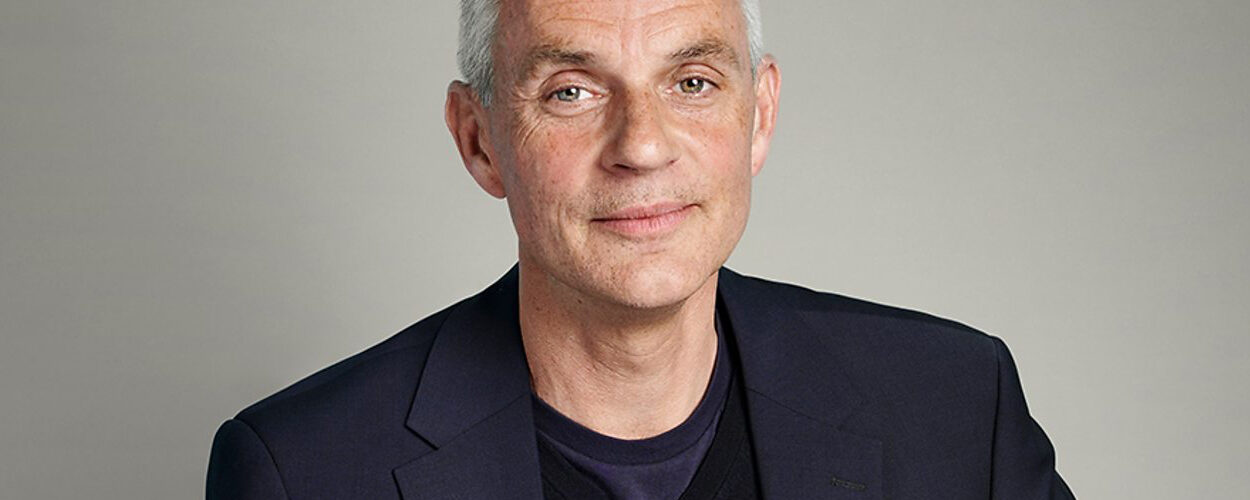This website uses cookies so that we can provide you with the best user experience possible. Cookie information is stored in your browser and performs functions such as recognising you when you return to our website and helping our team to understand which sections of the website you find most interesting and useful.
Business News Media
BBC boss Tim Davie talks about an internet-centric future with fewer TV channels and radio stations
By Chris Cooke | Published on Thursday 8 December 2022

The boss of the BBC, Tim Davie, yesterday said that the broadcaster needs to prepare for a future where most content is consumed over the internet and, as a result, operating lots of standalone channels and stations – as is the norm with traditional TV and radio broadcasts – won’t make any sense anymore.
There is usually a flurry of criticism and complaints whenever the BBC proposes to close down a channel – or take a broadcast service online only – and the concerns raised by the critics and complainers are usually valid.
Although, at the same time, the BBC has to find considerable cost savings as a result of its most recent licence fee settlement with the UK government; it needs to prepare for a future where the licence fee will probably be phased out completely; and it’s very aware that many younger consumers are simply not interacting with traditional broadcast channels.
In his speech for the Royal Television Society yesterday, Davie ran through some of the BBC’s key achievements over the last 100 years, including its current successes in terms of reach, influence and output. However, he explained, the media sector is changing rapidly and the BBC needs to move fast to keep up.
“Industry analysts predict that we have probably seen the last year in the UK when broadcasters make up the majority of video viewing”, Davie noted in his speech. “Five years ago broadcast TV reached nearly 80% of young adults a week. Today it’s around 50% and radical changes are happening across all ages. TikTok is now bigger than the BBC in video for 16-24s in the UK”.
“Imagine a world that is internet only”, he then mused, “where broadcast TV and radio are being switched off and choice is infinite. There’s still a lot of live linear viewing but it is all been delivered online … Could we harness the possibilities of this interactive digital landscape to increase public value and stimulate the UK media market? What would it actually take to deliver that?”
He then posed four questions: “Should we, as the UK, own a move to an internet future with greater urgency? Should we transform the BBC faster to have a clear, market leading role in the digital age? Should we proactively invest in the BBC brand as a global leader? Should we move faster in regulating for future success?”
The answer to all those questions, he argued, is a big fat “yes”.
“A switch off of broadcast will and should happen over time, and we should be active in planning for it”, he reckoned. Though for the BBC to embrace a shift to internet-only, “we must work together to ensure that everyone is connected, and can get their TV and radio via the internet. This isn’t something to resist. A fully connected UK has very significant benefits for society and our economy. It would unleash huge opportunities for innovation”.
And as the BBC’s services are increasingly online, “we will have fewer brands overall and consolidate more activity behind a simple, single brand in the UK: the BBC. And you’ll see this globally as well. We will also simplify sub-brands such as BBC News. You can see a first step in our bringing together of the BBC News Channel and BBC World News as one brand: BBC News”.
None of this is going to happen overnight, with Davie talking quite a bit about how things might look by 2030. But his main point was that the BBC needs to get ahead of the game in what he sees as an inevitable (and already happening) shift in media consumption, so that a public service broadcaster like the BBC, and the UK media industry at large, can still compete, in the UK and beyond.
“Digital offers a huge opportunity to unlock more audience value”, Davie went on, “but it requires big organisational change: a radical overhaul of how we use data, a heavyweight world-class tech team, new operating models, new creative solutions and ideas”.
“Imagine news reimagined for the iPlayer or increased functionality when watching the game online. We will be world-leading pioneers in this. No one in the world has created a digitally led public service media company of scale and the global opportunity for us is there for the taking”.
While partly preparing BBC audiences and employees for the bold changes ahead, there were also some obvious messages for government too in Davie’s speech. That’s partly about the funding of the Corporation, in both the short and longer term, but also about regulation, of the BBC itself, and even more importantly of the media and internet more widely.
You can read Davie’s full speech here.





